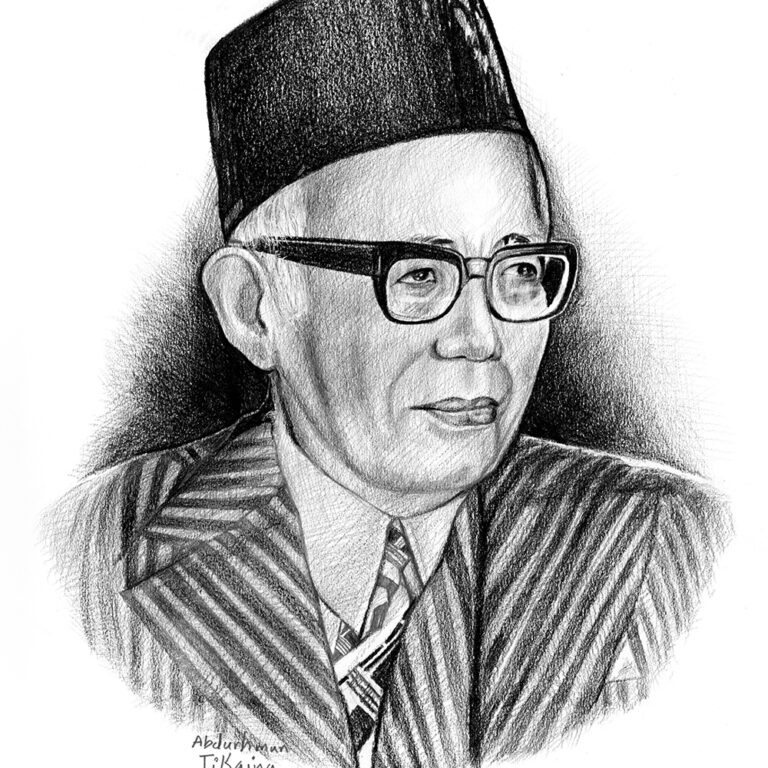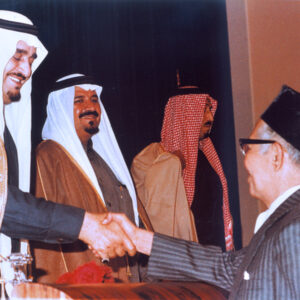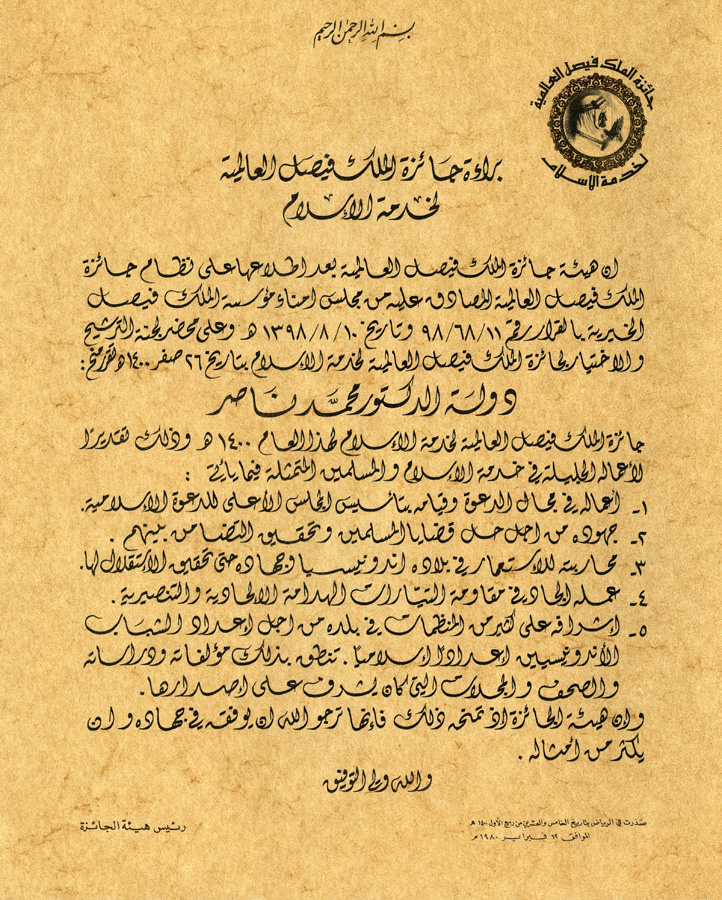

Dr. Mohammad Natsir
King Faisal Prize in Service to Islam 1980 Laureate
A nation will not progress before their teachers sacrifice for the needs of their nation

Dr. Natsir combined religious and public education. He received his first degree from the College of Education in Bandung and was subsequently awarded an honorary doctorate from the Islamic University in Jakarta. He worked as a teacher, an educator, and an administrator during the years of Dutch occupation of his country. In 1945, he joined anti-colonial efforts. He became a member of the Indonesian parliament, founded Masjumi (The Council of Muslim Associations of Indonesia) in 1946, and was a Minister of Information for four years. During his tenure, he vehemently opposed proposals to turn Indonesia into a confederacy and championed the unity of the republic.
Dr. Mohammad Natsir was not only a leading figure in the struggle against occupation in Indonesia, but also one of the leaders of the modern Islamic movement in that country.
In 1950, Natsir became Indonesia’s Prime Minister only to resign a year later following clashes with Indonesia’s Sukarno, who was heading towards autocratic rule. By the late 1950’s, Sukarno had banned Masyumi, and in 1961, he imprisoned Dr. Natsir and other leaders of the movement. They were released four years later by Suharto, who deposed Sukarno in a military coup. Following their release, Dr. Natsir and other leaders of the banned Masjumi, formed the Indonesian Supreme Council for the Islamic Daawa (invitation to join Islam) in Jakarta, and focused on public education, establishing mosques, assisting students and farmers, and promulgating Islam throughout Indonesia.
In 1967, he was selected a vice president of the International Islamic Conference held in Pakistan. He was a founding member and, at one time, a Vice-President of the Islamic World League. He published several articles and books, mostly dealing with questions of Islam and modern civilization, the foundations of Islamic government, Islam and World peace, and similar topics.
This biography was written in the year the prize was awarded.
- In 2008, the Indonesian government honored him with the title “national hero of Indonesia”
- Mohammad Natsir passed away in Jakarta on January 1, 1993.


